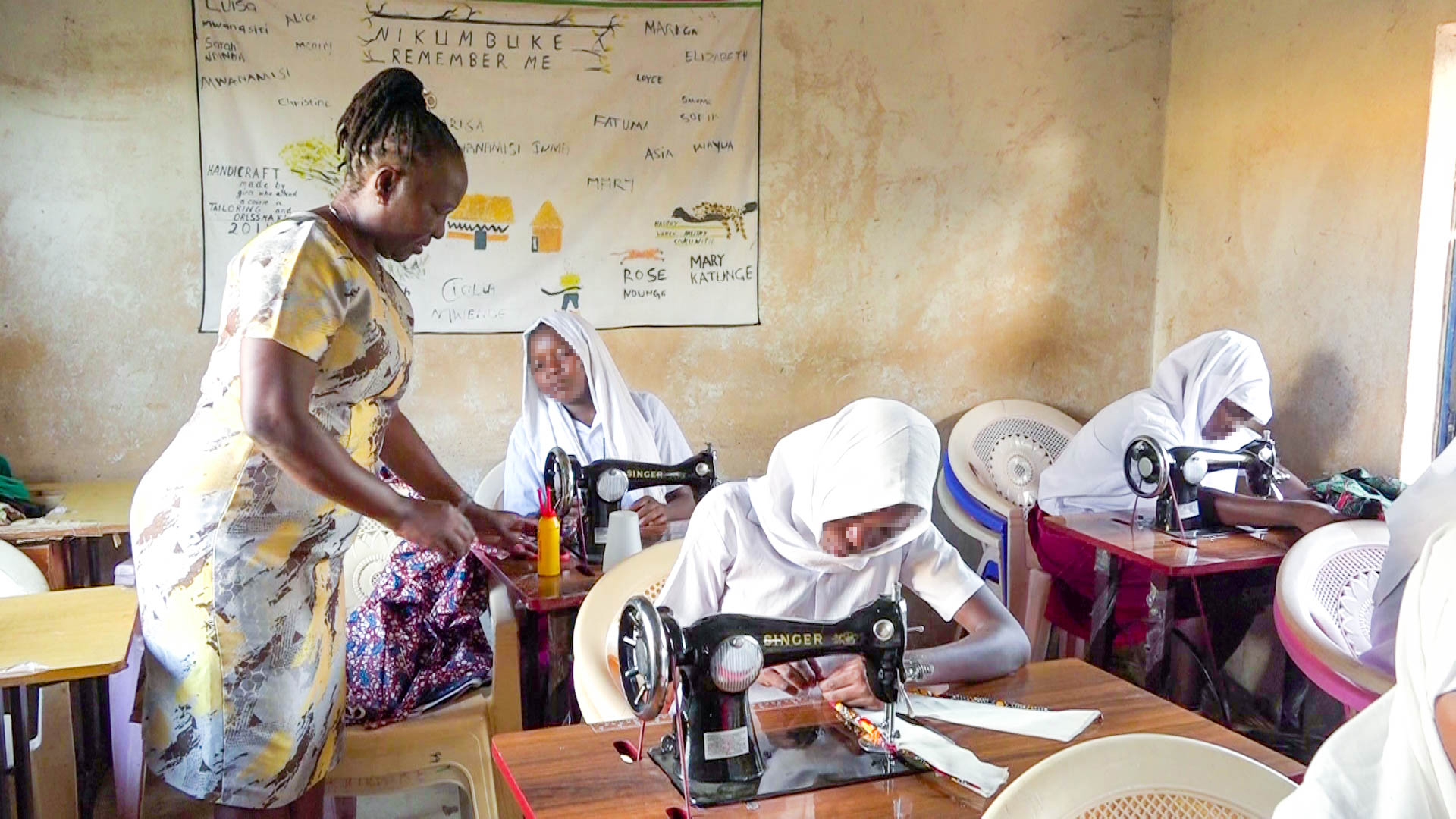As you make your steps to Nikumbuke in Lunga Lunga, Kwale County, the presence of young girls in uniform will not fail to attract your attention. To a certain point, you may mistake the place for a private school. But on a keen look, the girls are either in a small room busy with their sewing machines or are reading books.
Their innocent and calm faces do not betray the experiences some of them have undergone. Behind the smiles are some survivors of sexual and gender-based violence (SGBV).
The project launched thirteen years ago is a brainchild of a group of 120 women who had a vision of empowering young women and girls who were seen as rejects by the community. To date, a total of 4000 women and 6000 girls have been empowered through the project.
Ms. Bernadette Muthina, the project’s director says that the women and girls at Nikumbuke are trained in the basic understanding of English and Mathematics as well as business skills.
“Most of these women and girls here have never been to school and others are dropouts of either primary or secondary school. So, I offer them literacy in English, basic in mathematics and business skills,” she says.
“At Nikumbuke we also conduct a mentorship program for young girls in both primary and secondary schools – highlighting the importance of education as well as its completion. Further, we also have a business department that is training on entrepreneurship.
Ms. Muthina adds that the center also offers vocational training in tailoring which targets young girls. To date, at least 300 young girls have been trained in tailoring and have done their National Industrial Training Authority (NITA) exams.
“For vocational training, this year am having 32 girls but we have trained over 300 girls who have started their businesses or have secured employment in private businesses as tailors,” she says.
Despite the success stories, Nikumbuke projects have their challenges– a number of women from the Maasai and Nuruma communities can only understand their own language thus teaching them in English and Kiswahili is not possible. For vocational training, the center has only 14 sewing machines vis-a-vis the 32 girls who currently are being trained thus the girls have to share the machines. Technical skill training options are also limited to tailoring for girls and women and do not expose them to more lucrative any gender -stereotype courses.
On top of the technical challenges, the centre also faces social challenges where a number of men are not friendly to the fact that the centre only offers training to women and girls.
“The men were not believing in what I am doing. Some of them used to question why am working with women and girls alone while others denied the women opportunity to undergo the training,” says Ms. Muthina
Nikumbuke Project was born out of Ms. Muthina’s vision of becoming a teacher, however, that dream did not materialize as her parents were unable to take her to college. Being a secretary of a number of women’s groups in church and market, she was able to influence the women to start the project.
Currently, CCGD is empowering women like Ms. Muthina through Jasiri Fund – a Response, Recovery and Resilience Project in partnership with CREAW and GROOTS Kenya with support from Mastercard Foundation. Jasiri Fund is an affordable financial service accessible to women and young girls with an existing business.
By Maurice Goga


